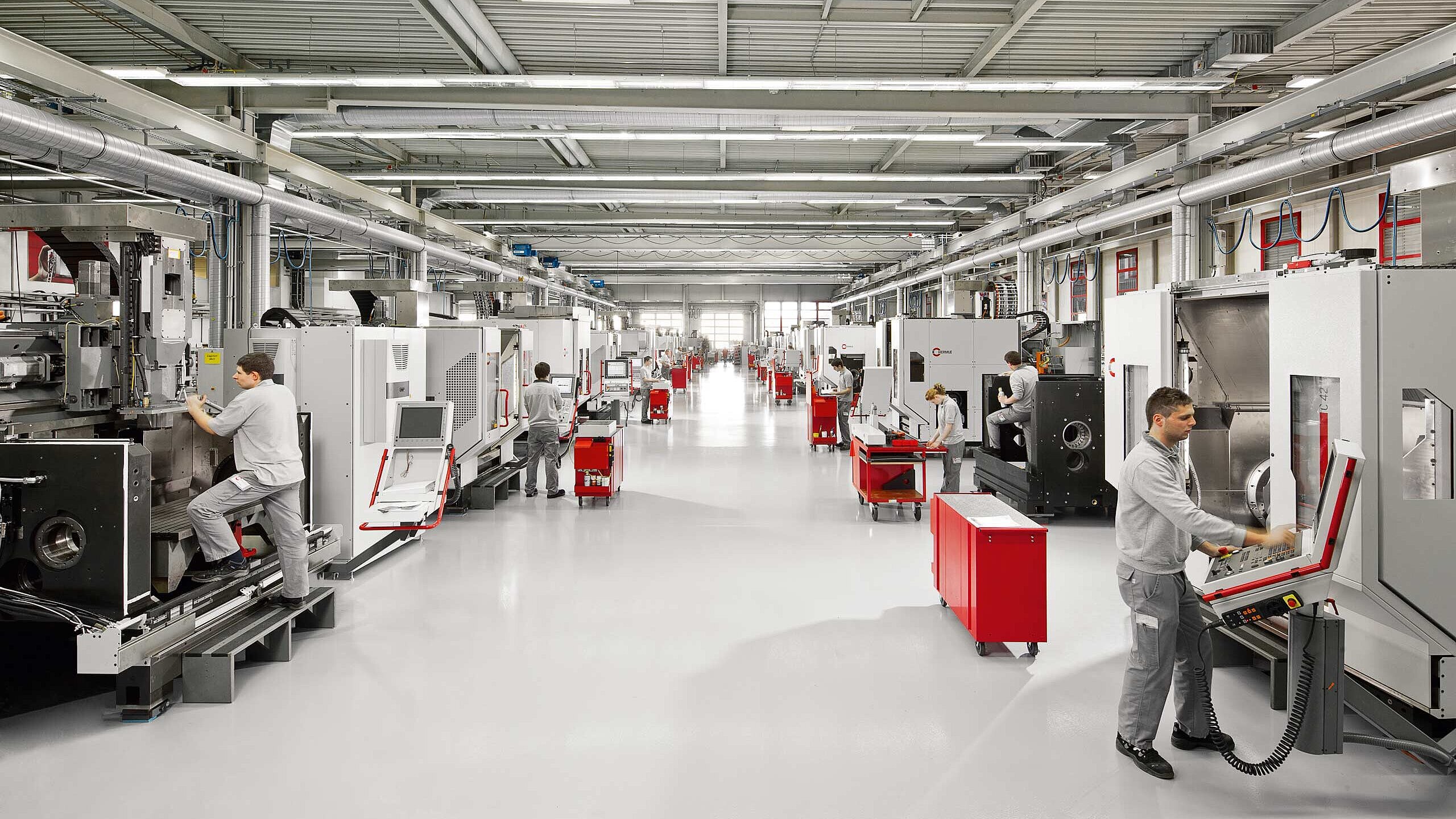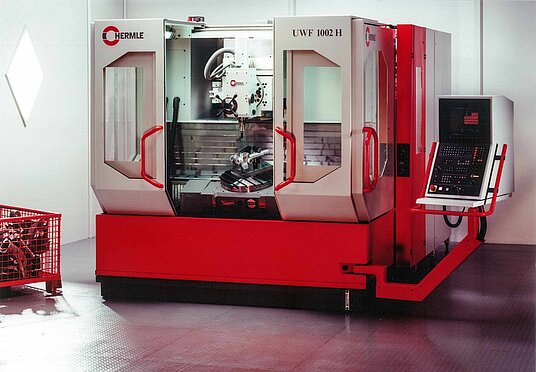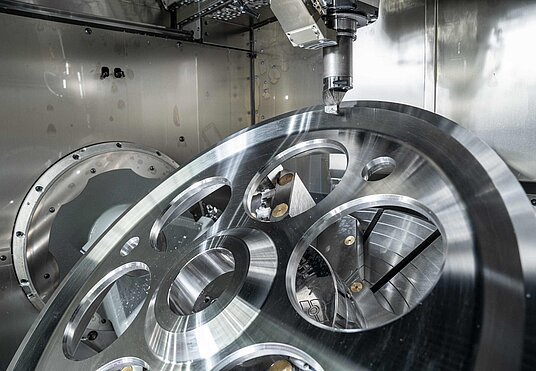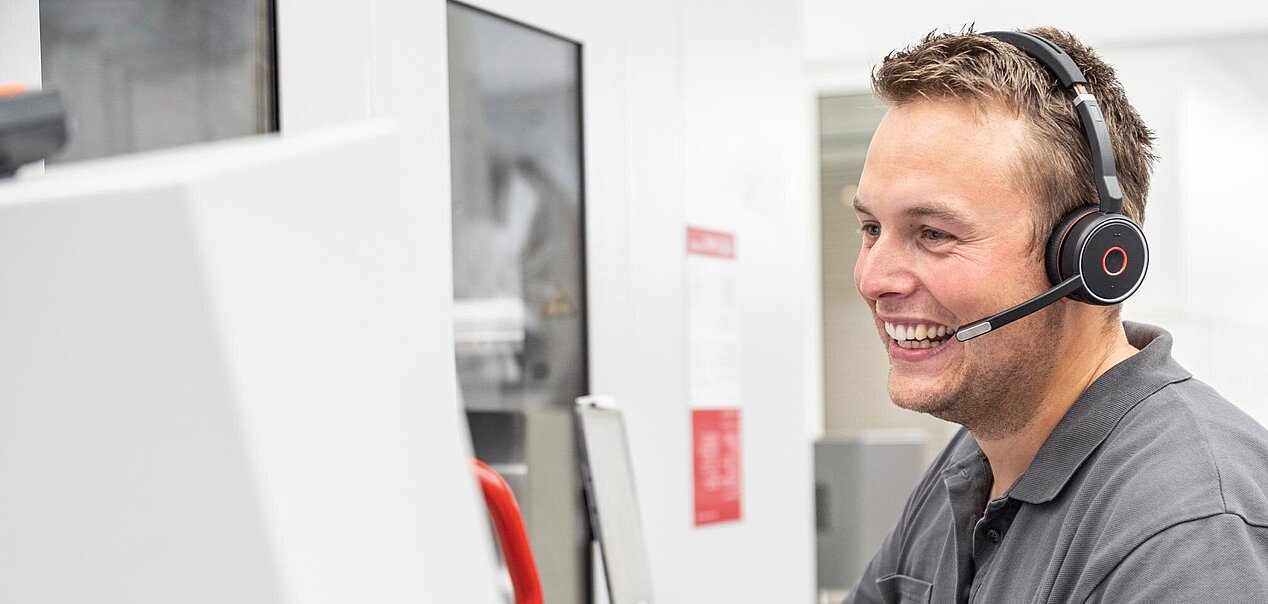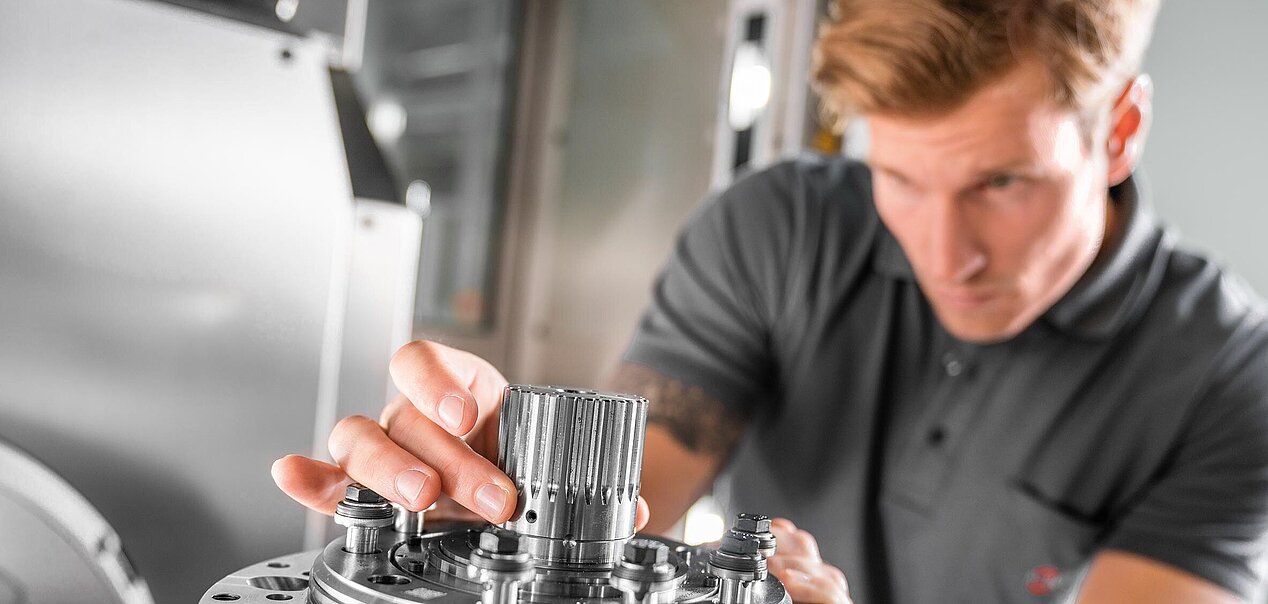Shining the spotlight on machine tool manufacturers
Machine tool manufacturers: the top 5 companies among CNC machining suppliers
The crisis triggered by the coronavirus pandemic hit machine tool manufacturers just as hard as it did other industries. In the first half of 2020 in particular, order numbers plummeted relative to the previous year. All over the world, CNC machining companies reported precipitous drops in turnover, while production at suppliers in the industry proceeded at a very sluggish pace.
Even in 2019, the year before the pandemic, there were signs of a distinct slump in the machine tool industry, as demand for machine tools and other machinery was low. The automotive industry, which plays a pivotal role in the machine tool sector, was also grappling with declining turnover.
Companies faced temporary production shutdowns, liquidity problems and short-time working. Nonetheless, the annual rankings continued to be published, and one list identified the most interesting machine tool manufacturers in Europe.
These were suppliers operating mostly in the development of CNC machining tools. Hermle occupied fifth place in this ranking, joining DMG Mori AG, Grob-Werke, Heller and United Grinding Group. Compared with previous years, this was a significant climb through the ranks.
It is worth mentioning here that Hermle secured this exceptional place on the list thanks to the outstanding quality of its automated machining centres. The coronavirus pandemic prompted the editorial team at PRODUKTION, which publishes the list every year, to modify its ranking system.
They realised that the manufacturers and companies producing machine tools were no longer limiting themselves to building machining equipment, and so it was becoming increasingly difficult to draw meaningful comparisons among them. They observed a trend towards products relating to digitalisation and automation, as (digital) services were becoming ever more lucrative.
The new ranking system, therefore, aims to enable once again the most accurate possible comparison of manufacturers and related companies. Consequently, the ranking focuses not on total corporate turnover but on turnover generated from the sale of machining equipment.
The biggest machine tool manufacturers in Europe.
It seems to go without saying that large workpieces and the associated production of large parts inevitably require machine tools of quite considerable size. But who in Europe manufactures these giant pieces of machining equipment? The biggest piece of machinery in the industry is probably made by WaldrichSiegen, the leviathan in question being the gantry version of the Profimill 3. This enormous machine tool spans an entire machining room, taking up a full 7,776 m³ of space.
This figure probably won't mean much to most people, so let’s think of it like a building containing around 32 flats, each with 100 m² of floor area and ceilings 2.4 m high. The Powertec-Tisch from Waldrich Coburg is also a giant in the industry.
It takes up 641.25 m³ of space, which is the same as eight tanks of fuel for conventional buses or full complements of fuel for three jumbo jets. However, in comparison with other machine tools, such as the Profimill 3, the installation space needed for this piece of machinery puts it only in tenth place in the ranking of the biggest machine tools in Europe.
Machine tools from Swabia: the upper echelon in machine tool manufacturers.
Swabian machine tools and their manufacturers are truly in the top tier. After all, every single one of the 15 machine-builders with the highest turnovers and their subsidiaries is located in the south of Germany. The machining equipment produced by machine tool manufacturers from the Swabia region enjoys an excellent reputation, having wowed industrial customers the world over with its quality, sustainability, efficiency and profitability.
Hermle is among those businesses that has made a name for itself in the world of CNC milling, securing a place on the ranking of the companies with the highest turnovers as a result. Its core areas of expertise cover the production of equipment such as gantry mills and machine tools including drills, lathes and cutters, as well as specialist CNC machines such as EDM (electrical discharge machining) equipment.
Hermle's CNC gantry mills boast extremely warp-resistant machine beds made from mineral composites or cast steel, allowing for high-precision machining of materials that are difficult to handle because they are especially hard, tough or brittle – so materials like high-alloy stainless steel, plastic, wood and non-ferrous metal.
Our gantry mills are particularly suited to machining large products. Examples of the applications involved include face and contour milling on large panels. This is why our CNC machinery is distinctly rigid because this ensures that the milling tools used can be positioned as accurately as possible every single time.
This is a characteristic that becomes especially relevant when the mill has to be placed on the same path multiple times in order to achieve greater milling depths while maintaining a high level of accuracy coupled with outstanding surface quality. In addition to equipment that can work on large surfaces, we manufacture a range of specialist machinery and machine tools aimed specifically at the mass production of small and complex parts such as those needed for making models and tools.
Our company has unquestionably earned its place in the ranking, because our fully automated machining centres allow materials to be milled in record time and to an exceptional degree of precision, all while requiring very little maintenance.
The key trends in machine tool manufacturing and clamping technology.
The machine tools industry may be going through some tough times, but we're always looking to what lies ahead, which is why we focus on the trends that are set to define the future of machine tool manufacturing. Digitalisation, automation and sustainability with domestic sourcing are just a few of the innovations being adopted by manufacturers and suppliers in the machine tools and mechanical engineering industries.
Buying state-of-the-art machine tools made in Germany can have a significant positive impact on a company's carbon footprint – and they are among the most sustainable machinery currently available on the market. One decisive factor here is their long service lives. The rate at which these systems are decommissioned is very low because machine tools of this type will usually undergo a complete overhaul before being sold on as second-hand machinery.
Machine tool manufacturers are constantly striving to upgrade their machining centres with new software to cut down on waste and offcuts. That applies to CNC machinery, too. The key thing to remember is that better efficiency in the production of machine tools creates room for a more sustainable way of doing business.
How sustainable machining actually works and what benefits it delivers.
When the conversation turns to sustainability in the machine tools industry, it's important not to forget machining. As we've already mentioned, machine tools made in Germany are among the most sustainable anywhere in the world. Yet the machining process itself is inherently not very sustainable.
So how exactly does sustainable cutting or milling work? This is where the concept of efficient processes comes back into play. After all, if a mill works efficiently, that means it also works sustainably. In addition, process simulations are becoming increasingly important. The complex interaction of machine tool, workpiece, tool, machining centre and more during the machining process makes process simulations extremely important.
This is because simulating the machine and the process makes it is possible to identify which of the possible solutions will ultimately be the best and most efficient, including in terms of energy usage. Furthermore, increasing production is a pivotal factor in improving sustainability, because greater productivity leads to the more sustainable and economical utilisation of resources.
Yet differences among machine tools also have a role to play – after all, a multi-spindle machine will, thanks to its better productivity, operate more sustainably than a different machining centre.
The world of machine tools and potential for the future in a nutshell.
As we've shown, machine tool manufacturers and their products for wide-ranging applications such as tapping, grinding, turning, stamping and forming cannot all simply be lumped together as one homogeneous group. After all, to make a name for itself and secure a leading position in various rankings, a company needs to make sure that its machine tools meet certain specifications.
They need to perform high-quality operations and work efficiently and sustainably. This is something that is very important to us and to our customers, who span numerous industries including automotive and aerospace. But if a company really wants to make it to the top of the charts, its productivity also needs to be reflected in its turnover. This year, our company demonstrated once again that it is capable of just such an accomplishment, despite the pandemic. That's why we managed to climb higher in the rankings than in previous years.
As a manufacturer of machine tools, we are confident about the future and are looking forward with a sense of optimism and excitement to watching our company evolve, as well as the machine tools industry in general, including the production of both small and large components.
It is an industry that not only is very important right now but also holds great promise for the future and is attracting ever more attention all over the world through issues such as domestic sourcing and sustainability. For more information about machine tool manufacturers in Germany, get in touch with the German Machine Tool Builders' Association (VDW).
